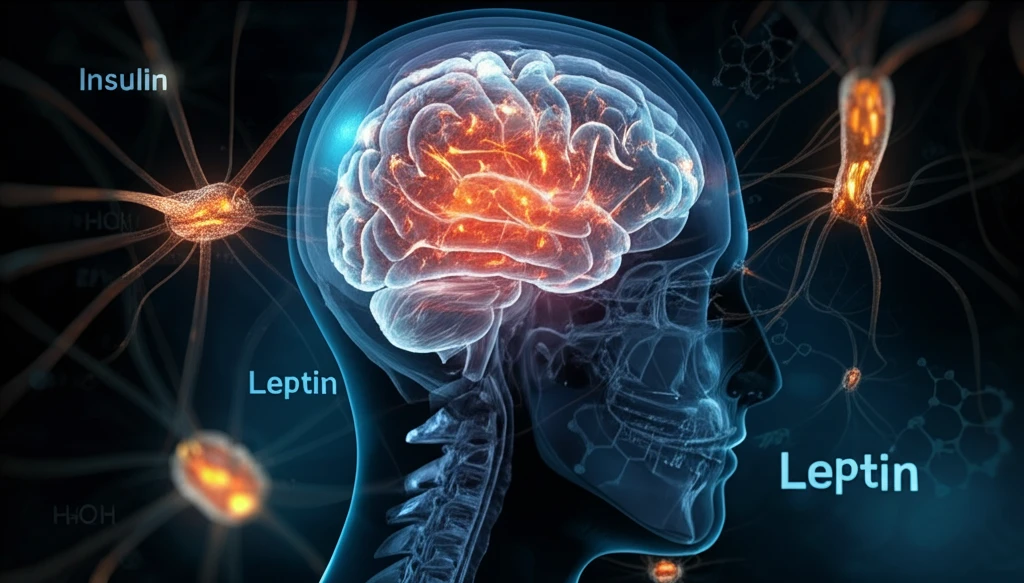
Brain Power: Unlocking the Secrets of Mitochondria for Insulin and Leptin Success
"Discover how the tiny powerhouses within your cells, mitochondria, are key to improving brain function, combating insulin resistance, and achieving a healthier weight."
The global rise in obesity and type 2 diabetes (T2D) presents a significant health challenge. Obesity isn't just a matter of excess weight; it's increasingly understood as a condition deeply connected to brain function, particularly the balance between energy intake and expenditure. This balance is largely governed by the hormones leptin and insulin, which act within the hypothalamus to regulate weight.
Unfortunately, long-term weight loss is notoriously difficult to maintain. This is because the body has compensatory mechanisms that favor weight regain. In individuals with obesity and T2D, the brain often becomes resistant to both insulin and leptin. This resistance leads to a cascade of problems, including elevated blood sugar (hyperglycemia), increased appetite (hyperphagia), reduced energy expenditure, and ultimately, obesity. Furthermore, the brains of those with T2D often show signs of oxidative stress and mitochondrial dysfunction, linked to structural changes and impaired neural connections.
The brain's primary fuel source is glucose, which is converted into energy (ATP) within mitochondria through a process called oxidative phosphorylation. Therefore, when mitochondrial function declines, it directly impacts behavior and contributes to obesity. This decline can also trigger insulin resistance in the hypothalamus. Conversely, leptin resistance can cause mitochondrial dysfunction, further exacerbating insulin resistance.
How Mitochondrial Dysfunction Fuels Insulin and Leptin Resistance

Mitochondrial dysfunction lies at the heart of insulin and leptin resistance in the brain. Studies in mice have demonstrated a clear link: mice lacking leptin receptors in the brain develop insulin resistance, while those lacking insulin receptors become obese and hyperleptinemic, both signs of leptin resistance. Understanding how these hormonal imbalances affect mitochondrial function is vital for developing targeted treatments against obesity and its related health problems.
- NOX3 and SOD3: This pathway involves an oxide transport chain mediated by NOX3 and SOD3.
- Transient H2O2 Burst: The chain generates a transient burst of hydrogen peroxide (H2O2).
- Phosphatase Suppression: This burst suppresses phosphatases that inhibit leptin signaling, allowing the hormone to function correctly.
Novel Strategies to Improve Brain Function
Research is increasingly focused on understanding the interplay between metabolic hormones and mitochondria to improve metabolic health and brain function. The goal is to identify new approaches to combat hormone resistance and develop effective strategies for treating obesity and related disorders. These efforts promise not only to address metabolic imbalances but also to enhance overall well-being by optimizing brain health.
